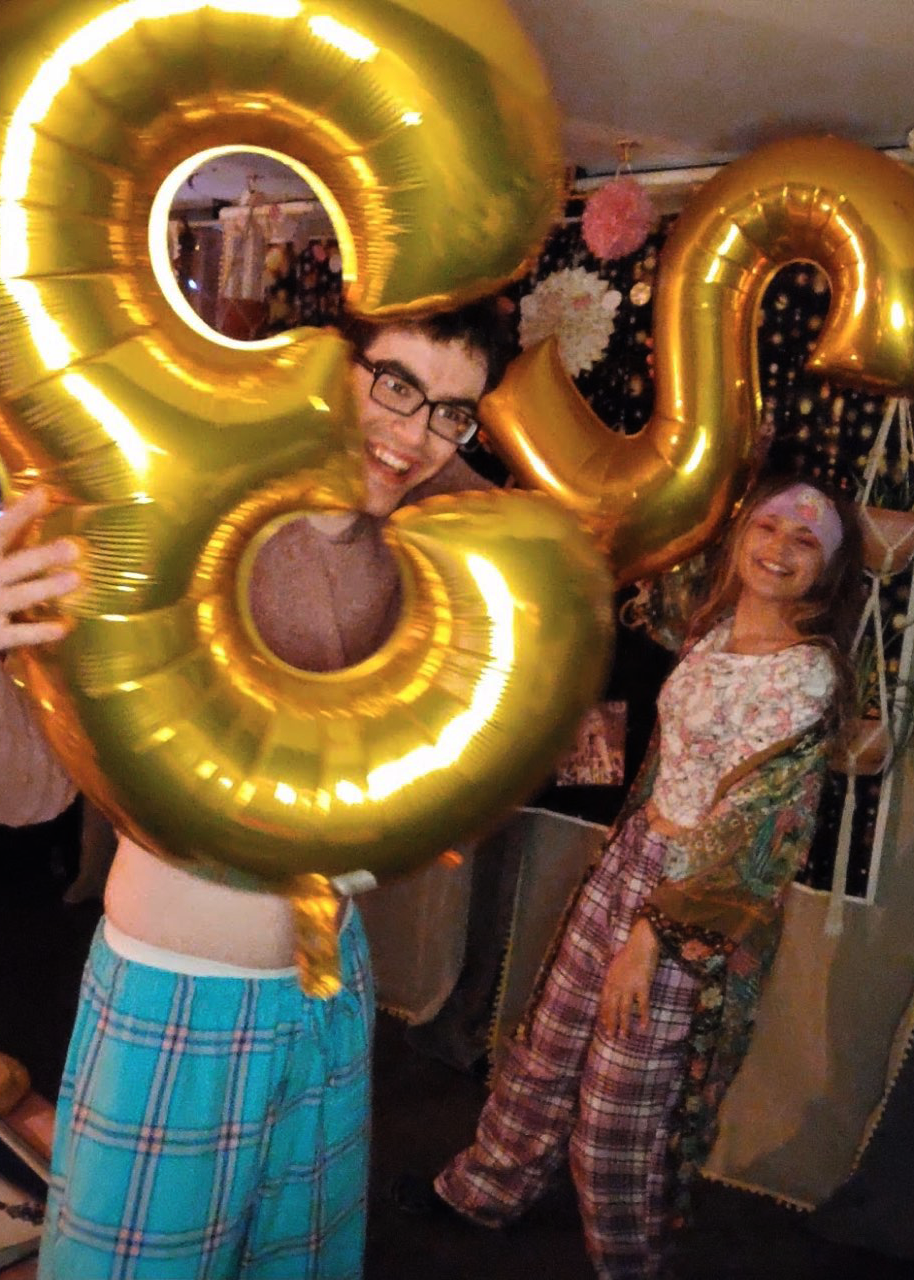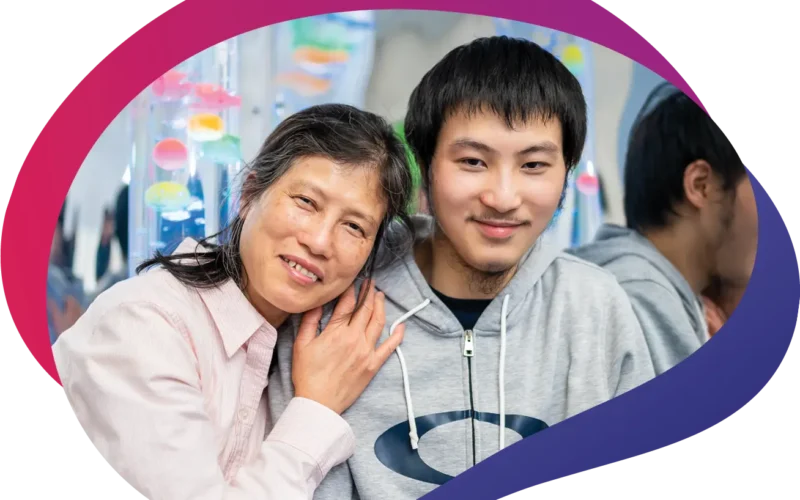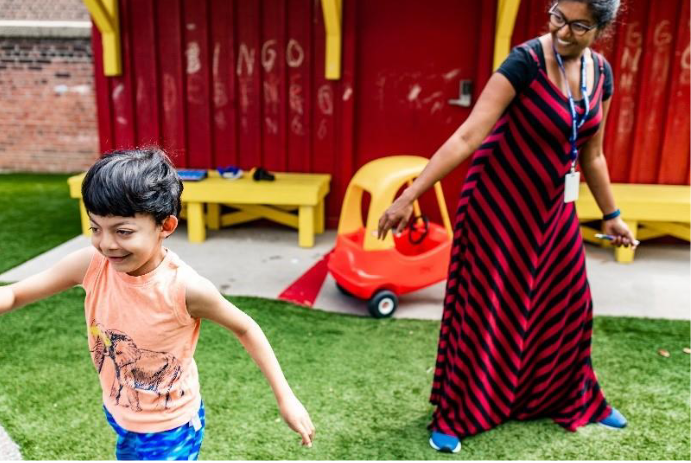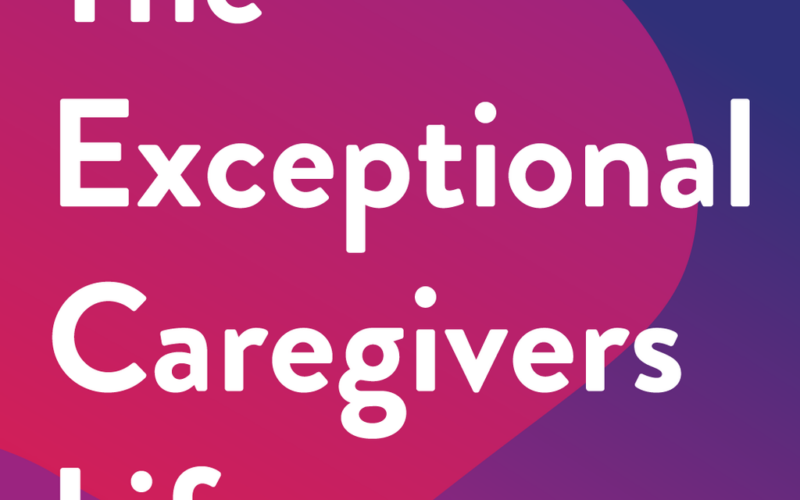In many ways, Sam Forbes is your average 23-year-old.
He loves pop culture, binge-watches TV shows, and is active on social media, where you can find him posting to Twitter, TikTok and Instagram.
His eyes light up when he talks about his wide-ranging interests.
“I’m a major true crime junkie,” says Sam, who is based in Toronto. “I binge-watched Inventing Anna, which is one of the craziest true crime stories I’ve ever heard.”
Sam also loves to read. Current topics of interest include books about his favourite musicians, the Holocaust, and historical books. He’s a huge manga fan too and loves Japanese animation films, citing the work of famed Japanese director Hayao Miyazaki.
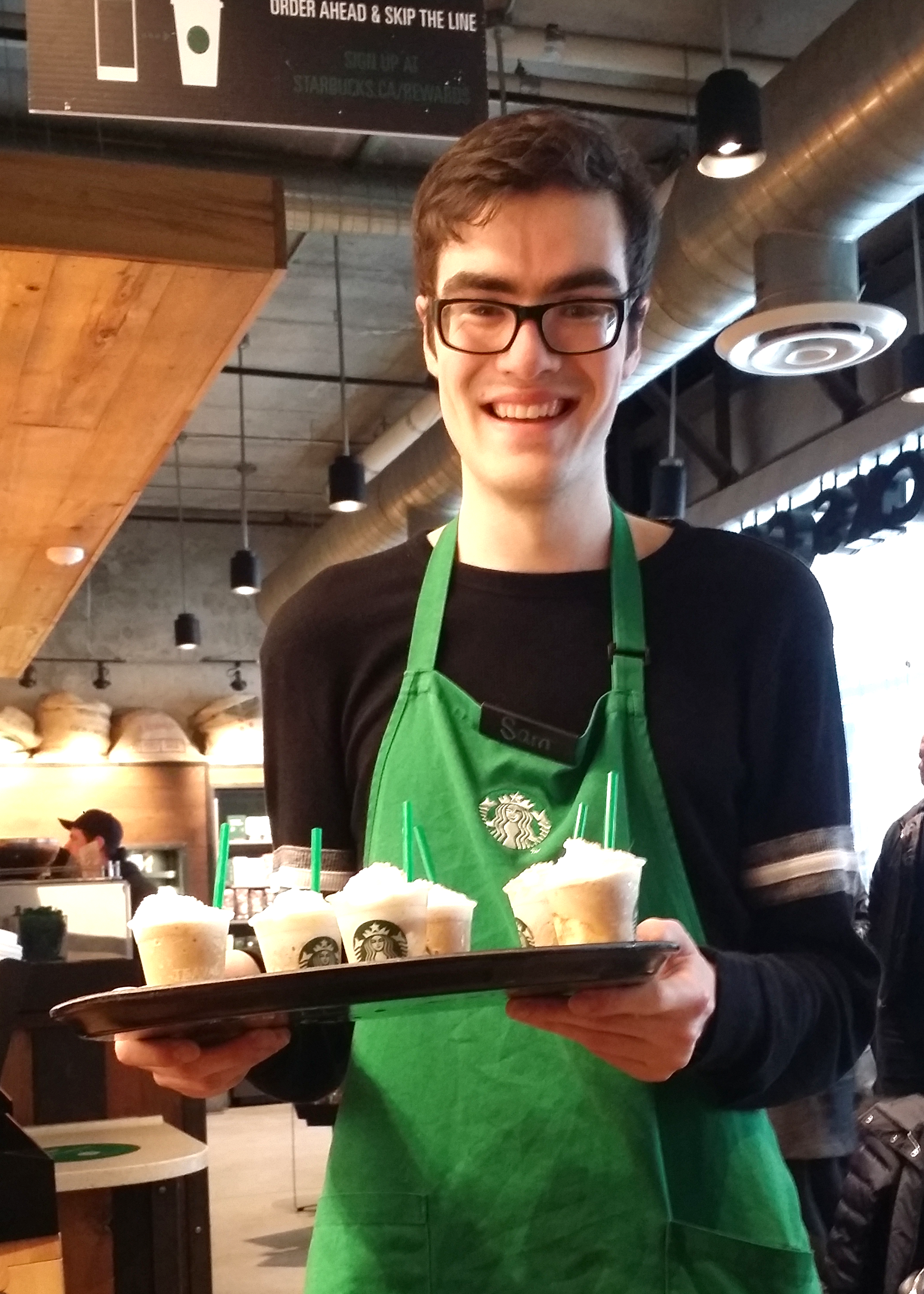
But there’s one thing about Sam that makes him unlike your average 23-year-old. Sam is autistic. He was diagnosed at age four at Surrey Place and has received various supports from the organization’s Autism Services over the years.
“I can do so many things that neurotypical people can do. I just process things differently.”
While some neurotypical people might perceive autism as a limitation, for Sam it’s been anything but. Living with autism has driven him to test his own boundaries while carving out a unique place in the world. In the process, Sam is leading by example.
“I’m an autistic young man trying to navigate this world of neurotypical people who may not understand my condition,” he says. “I’m trying to educate with my advocacy.”
Sam advocates passionately for both the neurodiverse and LGBTQ communities. At first, he was a little scared to talk publicly about issues that are close to his heart. “I was scared about alienating audiences,” he says. But he overcame this fear in an unexpected way – by appearing on The Ellen DeGeneres Show.
Here’s how it happened: In 2016, Sam became a viral sensation. A friend posted a video of him busting out some impressive dance moves while expertly making a beverage at the Starbucks where he works. Dancing helps Sam focus, allowing him to channel his stimming movements as he crafts customers’ drinks.
The “dancing barista” video spread like wildfire, and soon after Sam and his manager Chris found themselves on a Los Angeles bound flight.
“After being on Ellen I got over my anxiety and insecurity,” Sam says. “I overcame my fears by saying to myself: You’ve got this. You’re fierce. You’re amazing. I try to motivate myself, not just other people.”
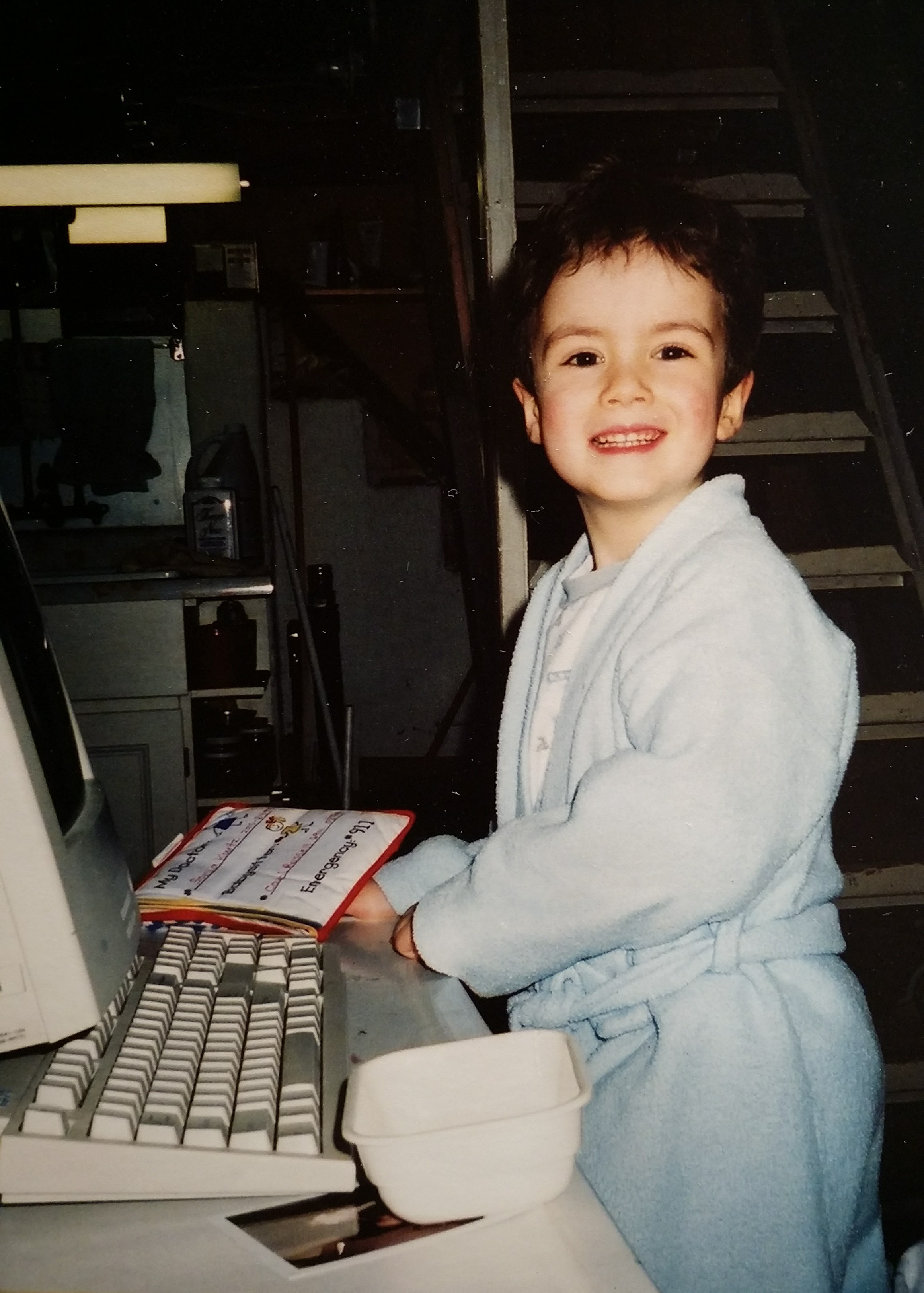
After the dancing barista video went viral, Sam says it was also touching to see the reactions of parents of individuals with different abilities. He emphasizes the words “different abilities.”
“I’m not a fan of the word ‘disability’- it has the words ‘diss’ and ‘ability’ and why would you diss my ability?” Sam explains. “I can do so many things that neurotypical people can do. I just process things differently.”
Sam is a pro at busting misconceptions while educating and inspiring people in both the neurotypical and autistic communities. And the way he lives his own life provides an example of how autistic people can thrive and want the same things in life as any other human being.
Sam holds down two jobs. He’s a graduate of Humber College’s Community Integration through Co-operative Education program. He hopes to get married. Like a lot of young adults, he feels he’s not ready just yet.
“I would love to find a partner one day,” he says. “I want to open my heart up to someone who is genuine. But right now, I don’t feel mentally ready to be in a relationship.”
Sam has a circle of supportive people who have encouraged him throughout his life. This includes his parents, friends, and his best friend and caregiver Nina, who kept him motivated as he worked toward his college diploma. He maintains a strong relationship with Chris, the Starbucks manager who hired him when he was 17. “He’s an amazing human being,” Sam says.
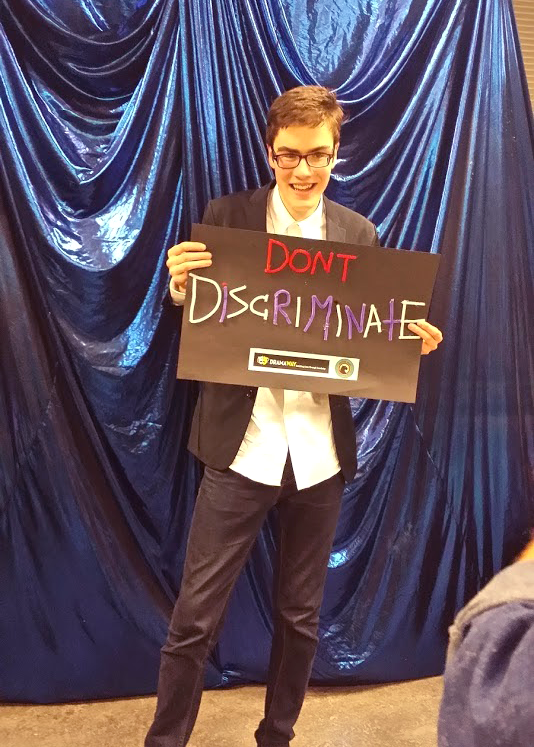
When he isn’t working at Starbucks, Sam is a public relations and fundraising ambassador for Community Living Toronto, which provides support for people with different intellectual abilities and their families.
“I plan to stick with those jobs for the rest of my life because I genuinely enjoy them,” he says. “The days where I don’t want to go into work are rare.”
Sam points out that the best way for neurotypical people to better understand the neurodiverse community is by building meaningful relationships while ditching preconceived notions about individuals with different abilities.
“It’s about understanding that we’re human beings and we also deserve to be treated like human beings. I would love it for neurotypical people to have a kinder view of neurodiverse people.”
“It would be great if they would surround themselves more with neurodiverse people,” he says. “It’s about understanding that we’re human beings and we also deserve to be treated like human beings. I would love it for neurotypical people to have a kinder view of neurodiverse people.”
Sam hopes to show people living with autism what’s possible based on his own life and personal experiences. “Just because you have autism, it doesn’t mean you shouldn’t go after your dreams or chase after a career you’re interested in,” he says. “Brush off all the nasty people who say you can’t do this or that. Listen to your own soul and mind and say ‘I’m going to go after whatever I want’ and then actually do it.”
Want to Access Autism Services?
Call our Children & Youth Intake 1-833-575-KIDS (5437)
Written by Stacey Stein
